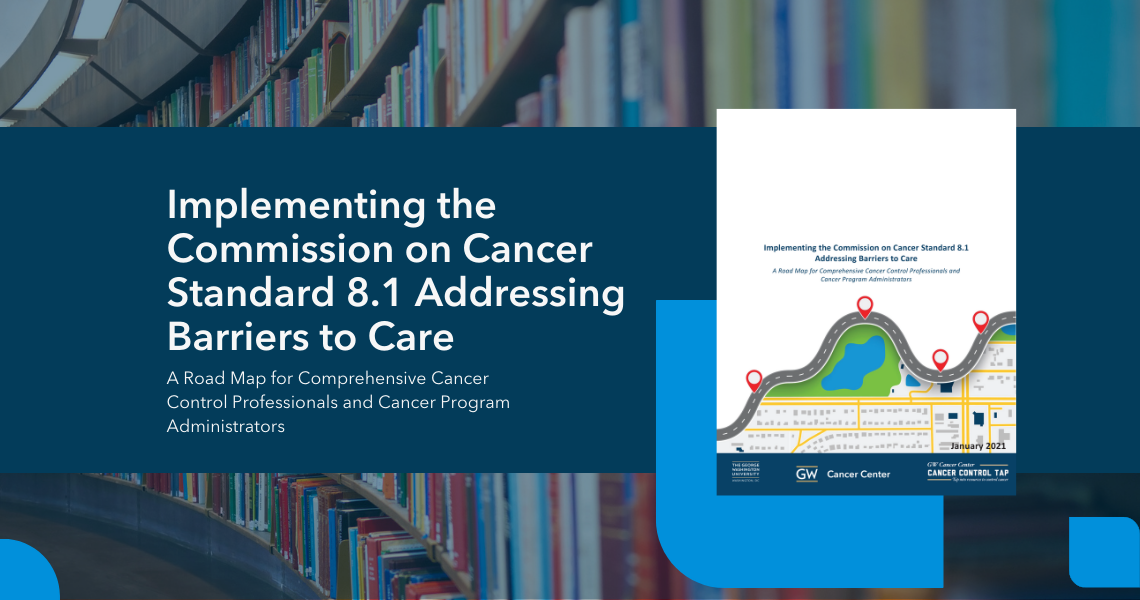The GW Cancer Center developed this road map to support comprehensive cancer control (CCC) professionals and cancer program administrators from hospitals, treatment centers and other facilities to fulfill the requirements for this standard. The purpose of this road map is to guide CCC professionals and administrators in identifying and addressing barriers to accessing health and/or psychosocial cancer care for cancer patients.
This road map for Implementing the Commission on Cancer Standard 8.1: Addressing Barriers to Care is an update of a previous resource for Implementing the Commission on Cancer Standard 3.1: Patient Navigation Process. Although the 2020 Commission on Cancer (CoC) standards do not specifically require conducting a community needs assessment (CNA) or establishing a patient navigation process, this road map includes guidance on conducting a CNA, which can be a useful approach to identifying barriers to cancer care. Additionally, patient navigation can be used as a means to address barriers facing patients, caregivers, and communications in a cancer program’s catchment area. Therefore, guidance and resources on patient navigation are included in this road map.
Funding for this project was generously provided by the Centers for Disease Control and Prevention (CDC) in response to technical assistance requests by comprehensive cancer control stakeholders to help cancer control coalitions help their cancer center members meet CoC standards.
View Implementing the Commission on Cancer Standard 8.1 Addressing Barriers to Care Road Map (PDF)

